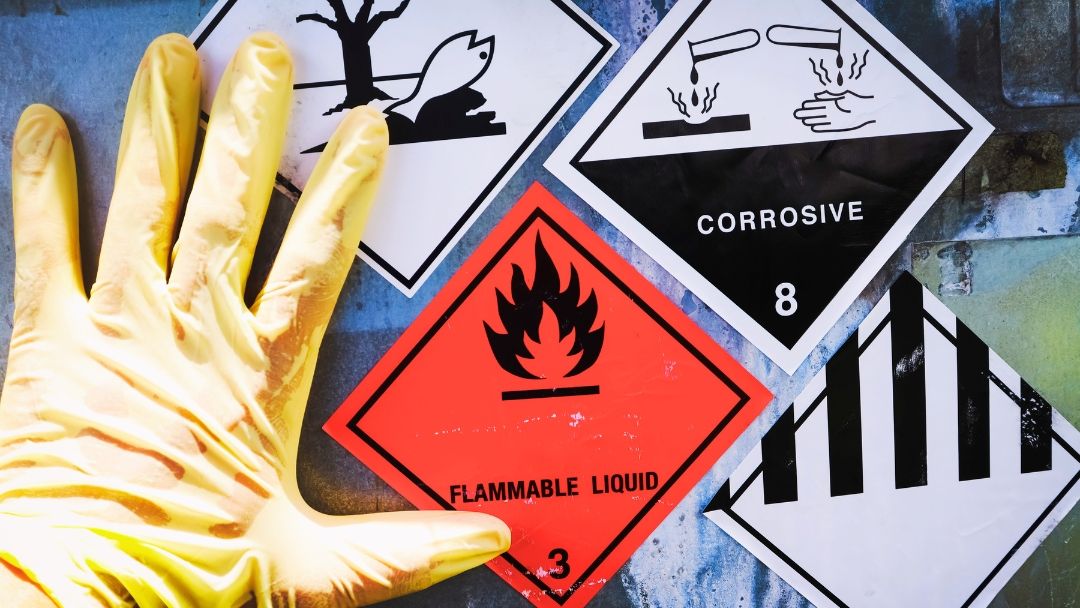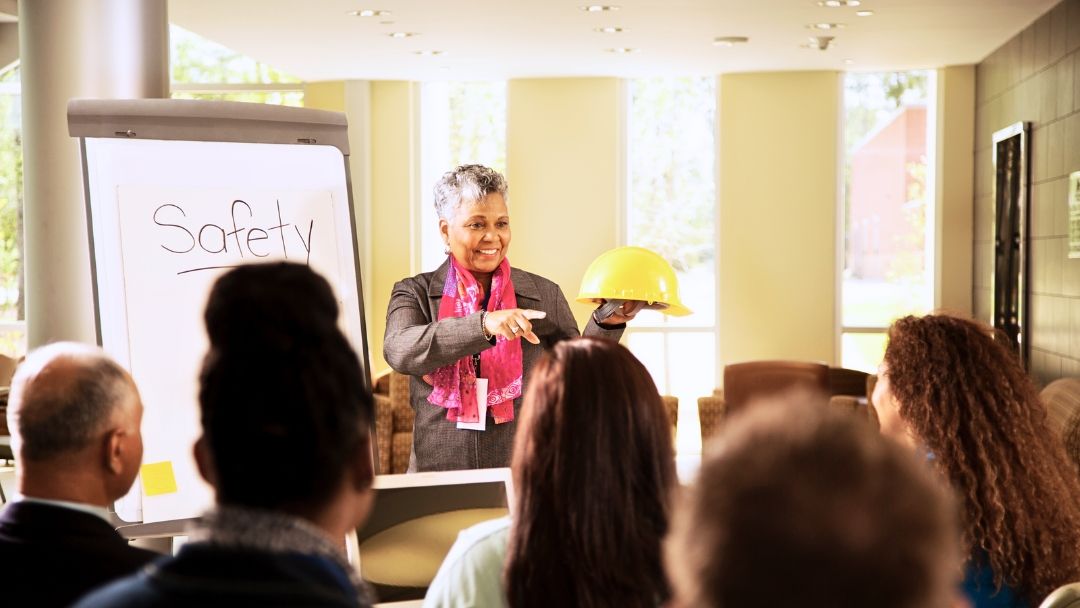Introduction
In Canadian workplaces, fostering a culture of safety and compliance with Workplace Hazardous Materials Information System (WHMIS) regulations is paramount. Achieving this requires dedication to developing and enhancing essential workplace skills. From technical competencies to interpersonal aptitudes, these skills form the foundation of a resilient safety culture. Let's delve into how organizations can cultivate a workforce that not only understands the intricacies of WHMIS regulations but also actively contributes to creating a secure and compliant work environment.
Core Technical Competencies for Workplace Safety and WHMIS in Canada
Core technical competencies are essential for creating a secure and compliant work environment, especially in the context of workplace safety and WHMIS in Canada. These competencies focus on:
1. WHMIS Understanding
Proficiency in identifying hazardous materials, and understanding WHMIS symbols, classifications, and safety data sheets.
2. Safety Data Sheet (SDS) Management
Competence in accessing, interpreting, and ensuring the compliance of SDS, including documentation management.
3. Hazard Communication
Effective communication of hazards and delivering comprehensive WHMIS training to personnel.

4. Emergency Response Preparedness
Understanding emergency response protocols and crisis management for incidents involving hazardous materials.
5. Workplace Inspections and Audits
Competency in identifying hazards through inspections and conducting compliance audits for WHMIS standards.
6. Continuous Improvement
Staying updated on WHMIS regulations, actively seeking process enhancements, and proposing improvements for workplace safety.
These core competencies collectively contribute to a workplace environment prioritizing safety, compliance with WHMIS regulations, and empowering employees with the necessary knowledge for effective hazardous material management.
Soft Skills for Workplace Success: Enhancing Safety and WHMIS Adherence
While technical competencies are vital, soft skills play a crucial role in achieving workplace success, especially in the context of workplace safety and WHMIS adherence in Canada. These interpersonal and communication skills contribute to a positive safety culture and effective implementation of WHMIS regulations:

1. Communication Skills
a. Clear Articulation: The ability to communicate safety information clearly is essential. This includes conveying WHMIS-related instructions, emergency procedures, and potential hazards effectively.
b. Active Listening: Being an active listener ensures that instructions related to workplace safety, WHMIS updates, and emergency response protocols are fully understood.
b. Active Listening: Being an active listener ensures that instructions related to workplace safety, WHMIS updates, and emergency response protocols are fully understood.
2. Teamwork and Collaboration
a. Collaboration on Safety Protocols: Soft skills enable individuals to work collaboratively on safety protocols, ensuring that everyone is on the same page regarding WHMIS compliance and emergency response procedures.
b. Supportive Team Environment: A positive and supportive team environment fosters a culture where individuals feel comfortable reporting safety concerns and discussing WHMIS-related issues.
b. Supportive Team Environment: A positive and supportive team environment fosters a culture where individuals feel comfortable reporting safety concerns and discussing WHMIS-related issues.
3. Adaptability and Flexibility
a. Response to Changing Circumstances: Soft skills such as adaptability allow individuals to respond effectively to changing circumstances, including updated WHMIS regulations and evolving safety protocols.
b. Crisis Management: The ability to remain calm and focused during crises, while adhering to WHMIS guidelines, is facilitated by strong adaptability and flexibility.
b. Crisis Management: The ability to remain calm and focused during crises, while adhering to WHMIS guidelines, is facilitated by strong adaptability and flexibility.

4. Problem-Solving Skills
a. Addressing Safety Concerns: Soft skills in problem-solving empower individuals to address safety concerns promptly, whether related to WHMIS compliance, workplace hazards, or emergency situations.
b. Continuous Improvement: The capacity to identify areas for improvement in WHMIS processes and safety measures stems from effective problem-solving skills.
b. Continuous Improvement: The capacity to identify areas for improvement in WHMIS processes and safety measures stems from effective problem-solving skills.
5. Leadership Abilities
a. Safety Advocacy: Soft skills in leadership enable individuals to advocate for safety, ensuring that WHMIS guidelines are upheld and that the importance of workplace safety is emphasized.
b. Training and Mentoring: Leaders with strong soft skills can effectively train and mentor others on WHMIS regulations and safety practices.
b. Training and Mentoring: Leaders with strong soft skills can effectively train and mentor others on WHMIS regulations and safety practices.
6. Empathy and Respect
a. Understanding Co-Workers: Empathy fosters understanding among co-workers, promoting a culture where everyone appreciates the importance of adhering to WHMIS regulations for the collective safety of the team.
b. Safety Culture: Respecting diverse perspectives and experiences contributes to a positive safety culture that values the well-being of each team member.
b. Safety Culture: Respecting diverse perspectives and experiences contributes to a positive safety culture that values the well-being of each team member.
Soft skills are the glue that binds technical competencies together, creating a workplace environment where safety is a shared responsibility and WHMIS adherence becomes a seamless part of everyday operations. By fostering these skills, individuals contribute to a culture of safety that goes beyond mere compliance and reflects a genuine commitment to the well-being of all.

Importance of Adaptability and Critical Thinking: Navigating Workplace Safety and WHMIS Challenges
When it comes to workplace safety and WHMIS compliance in Canada, the significance of adaptability and critical thinking cannot be overstated:
1. Adaptability for Changing Safety Protocols
Adaptability is crucial for integrating new WHMIS regulations efficiently and adjusting emergency response strategies to unexpected incidents.
2. Critical Thinking in Hazard Identification
Critical thinking skills systematically analyze workplace conditions, identify hazards related to WHMIS-classified materials, and inform decision-making in hazardous situations.
3. Problem-Solving in WHMIS Compliance
Proficiency in critical thinking aids in addressing WHMIS compliance issues and contributes to continuous improvement in processes.
4. Flexibility in Emergency Response Plans
Flexibility ensures the adjustment of emergency response plans to fit unique crisis scenarios while maintaining WHMIS compliance.

5. Enhancing Safety Culture
Adaptability and critical thinking foster a workplace culture that values flexibility in safety standards, promoting proactive WHMIS compliance.
6. Collaboration in WHMIS Training Programs
Collaborative efforts in adapting and customizing WHMIS training programs encourage critical thinking and the application of knowledge in real-world scenarios.
Adaptability and critical thinking elevate workplace safety, ensuring continuous improvement, and unwavering adherence to WHMIS regulations.
Developing Essential Workplace Skills for Safety and WHMIS Competence
Essential skills can translate into a robust safety culture and WHMIS compliance. These skills include:
1. Technical Competencies
- WHMIS Understanding: Grasping WHMIS symbols, classifications, and safety data sheets through ongoing training.
- Hazard Identification: Identifying workplace hazards, especially those related to WHMIS-classified materials.
2. Safety Communication
- Clear Communication: Effectively communicating safety information, including WHMIS guidelines and emergency procedures.
- Training Delivery: Delivering comprehensive WHMIS training programs for a well-informed workforce.

3. Emergency Response Proficiency
- Crisis Management: Proficiency in managing crises related to hazardous materials, adhering to WHMIS protocols.
- Regular Drills: Conducting regular drills and simulations to enhance emergency response skills.
4. Continuous Learning and Adaptation
- Stay Informed: Commit to continuous learning about the latest WHMIS regulations and industry best practices.
- Adaptability: Developing an adaptable mindset to adjust to evolving safety protocols.
5. Interpersonal Skills
- Team Collaboration: Enhancing collaboration skills for seamless teamwork in upholding safety standards.
- Reporting and Feedback: Encouraging open communication for reporting safety concerns and providing feedback on WHMIS processes.

6. Problem-Solving and Innovation
- Addressing Compliance Challenges: Using problem-solving skills to address challenges related to WHMIS compliance.
- Innovative Solutions: Encouraging innovation in safety practices for continuous improvement in WHMIS processes.
By focusing on these skills, organizations can create a safer work environment, ensure WHMIS compliance, and foster a culture where safety is a shared commitment.
Commitment to ongoing learning, adaptability to changing safety protocols, and the cultivation of strong interpersonal and problem-solving skills collectively contribute to workplace environments that prioritize safety and compliance with WHMIS regulations. By investing in the development of these skills, organizations not only ensure the well-being of their employees but also fortify their capacity to navigate the complexities of hazardous materials in the workplace. In doing so, they not only meet regulatory requirements but also foster a culture where safety is ingrained in every aspect of daily operations.
Level up your workplace safety!
